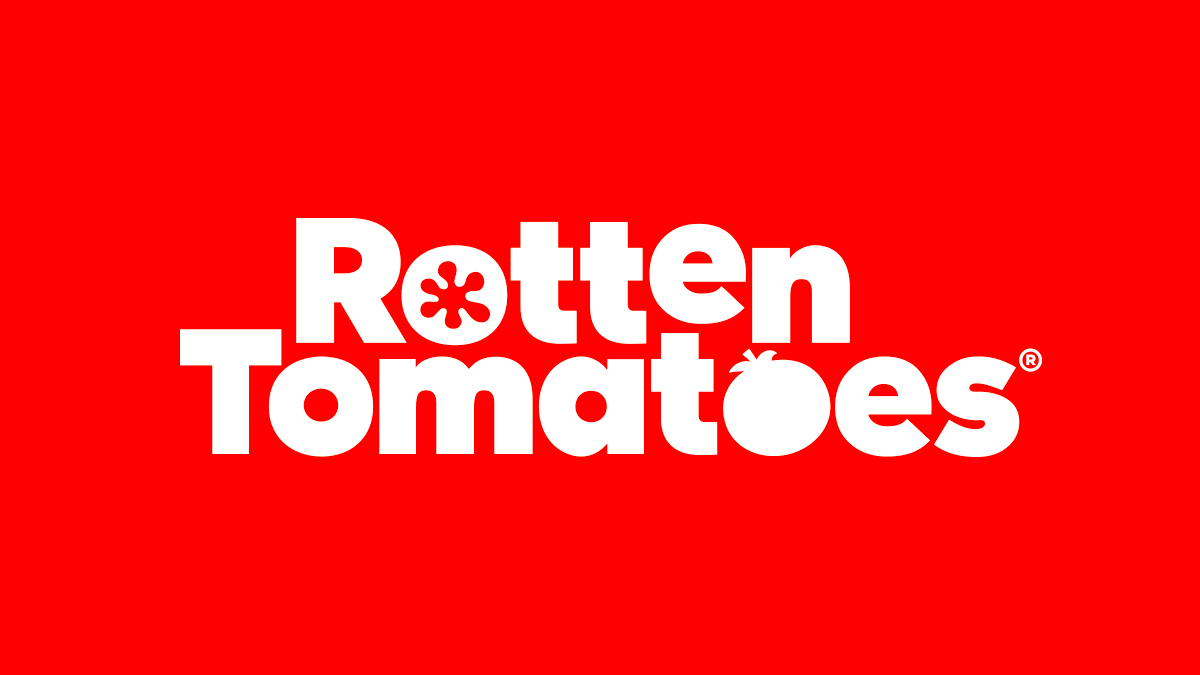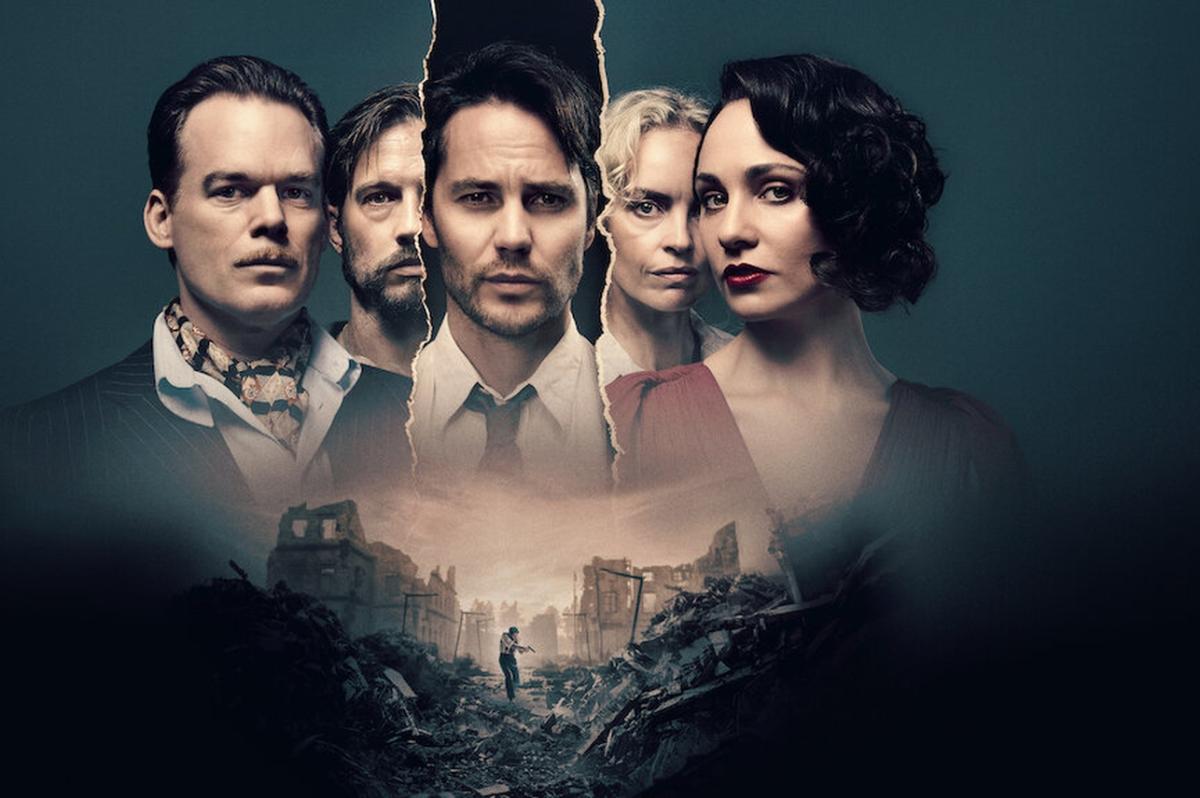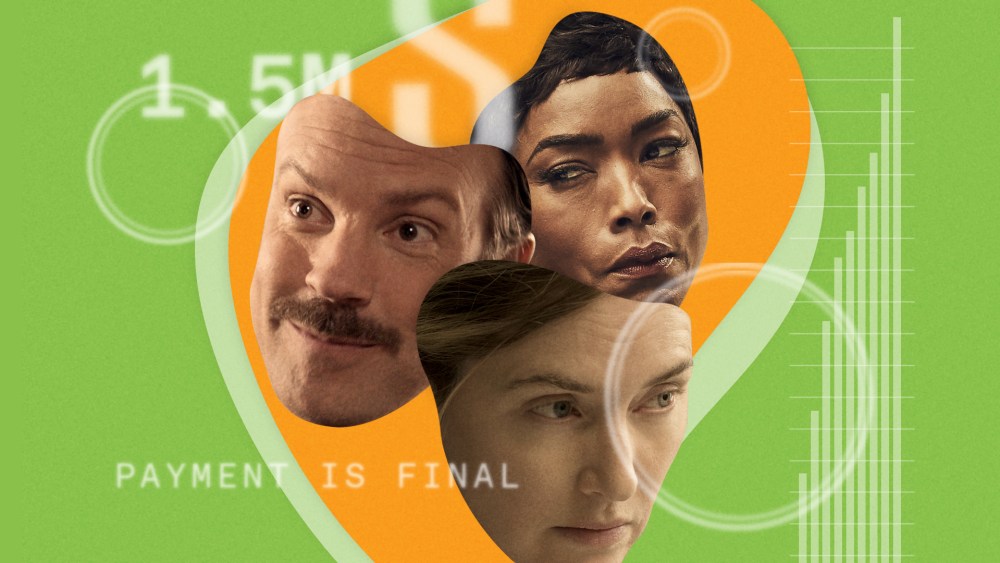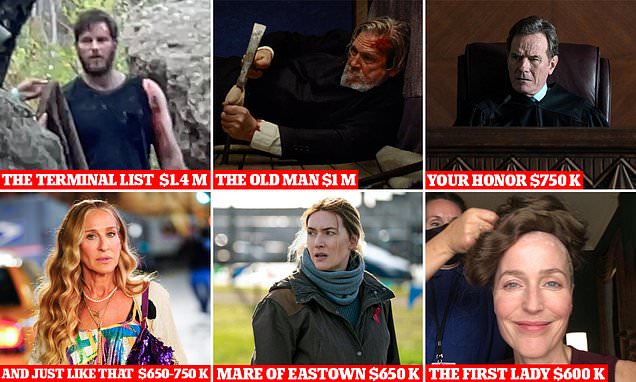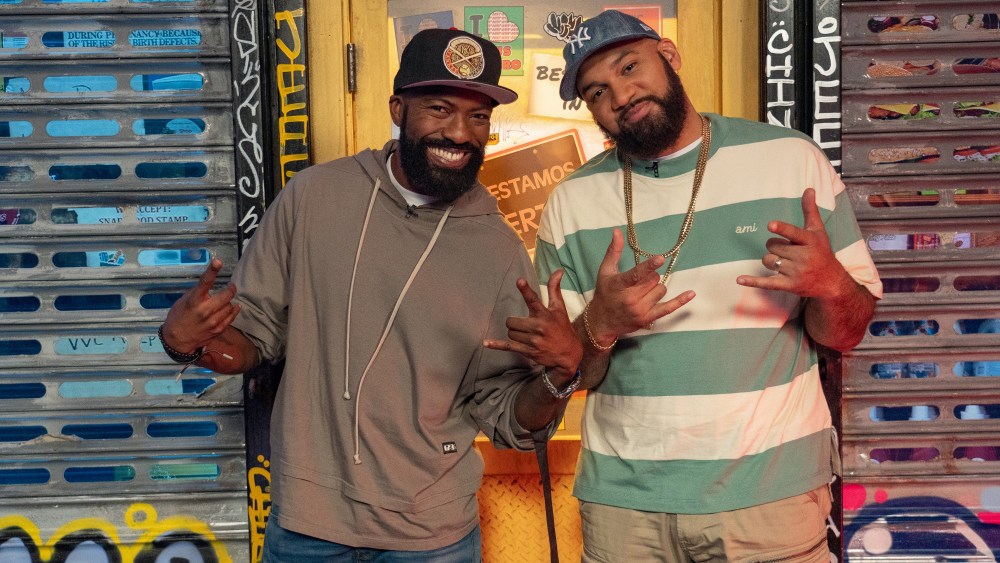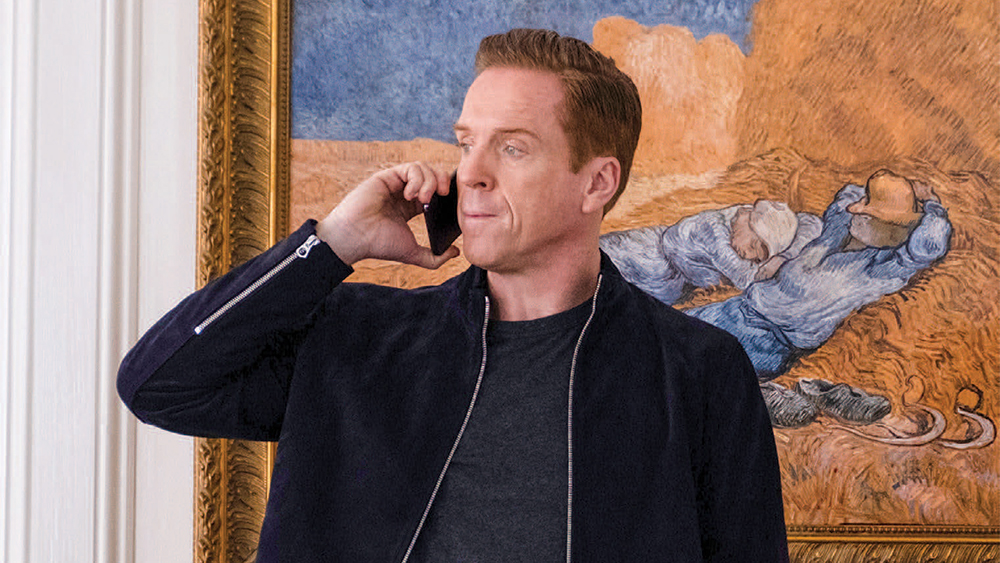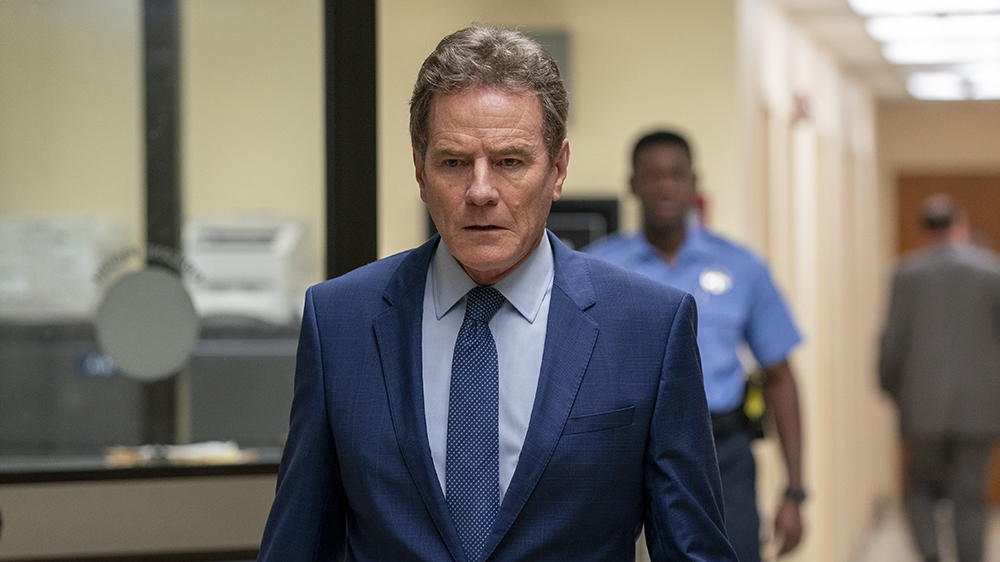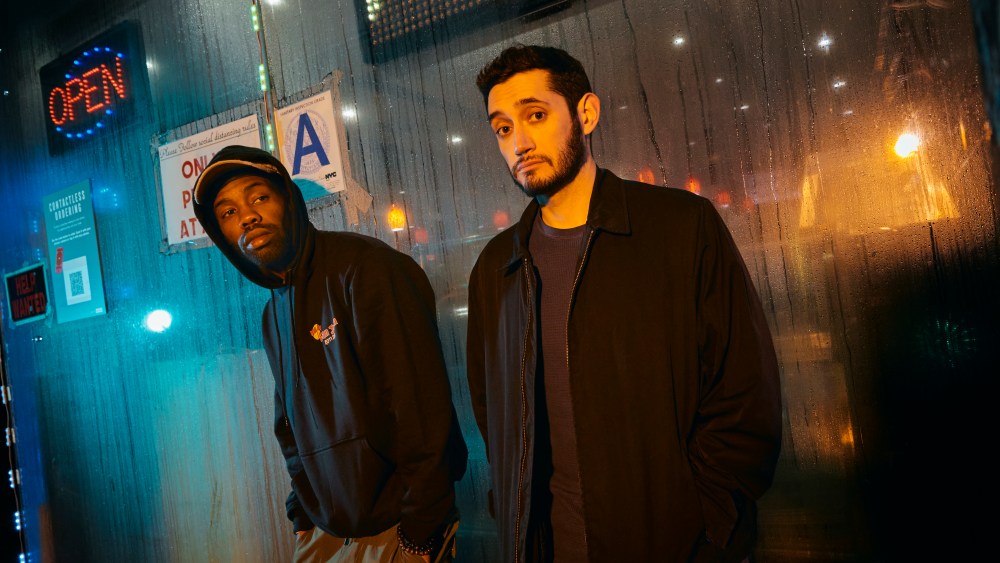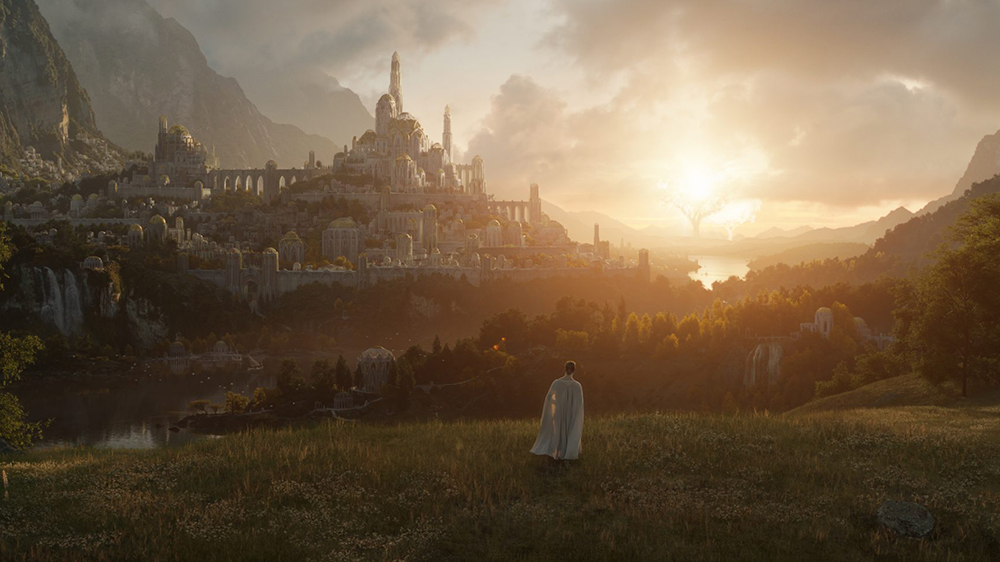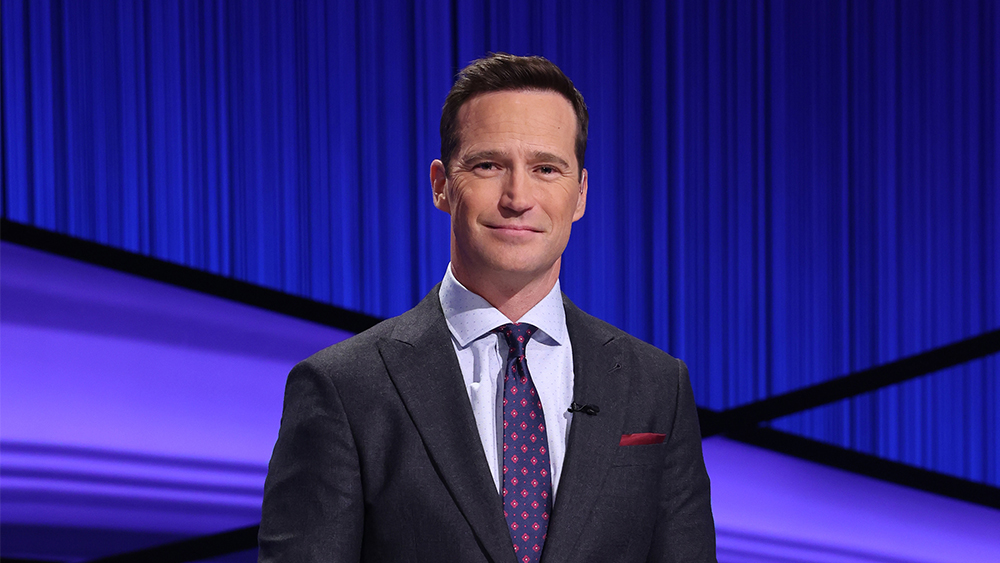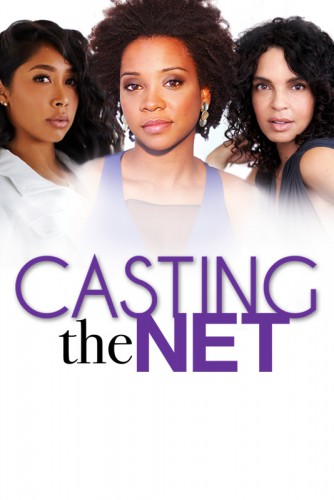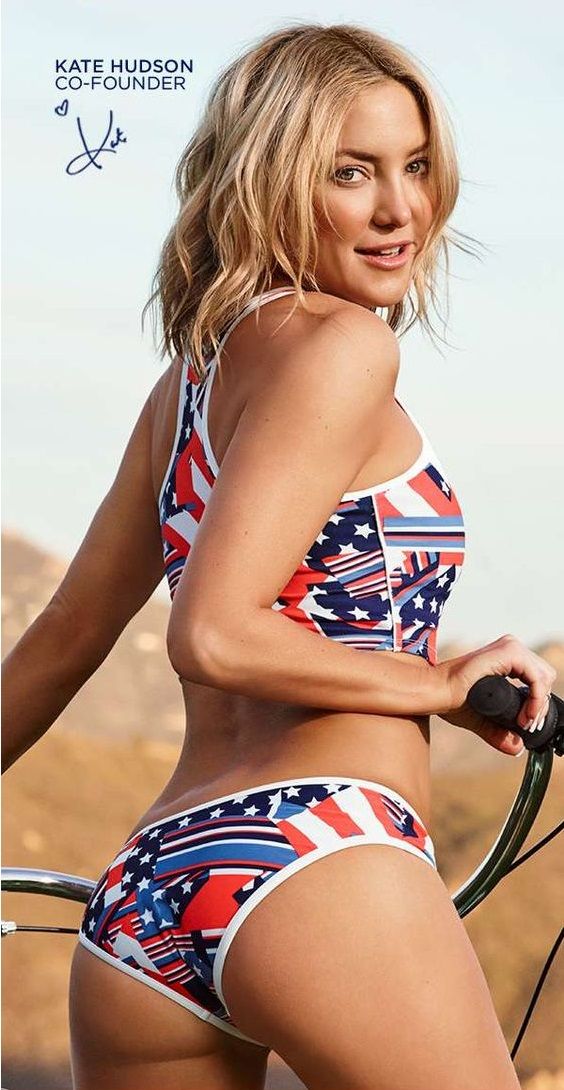Mike White Accepts the Criticism
The White Lotus creator understands if you feel conflicted about that ending. So does he.
By
Kathryn VanArendonk
Photo: TODD MIDLER/The New York Times/Redux
The White Lotus is a show born out of necessity, an HBO series that creator Mike White could produce quickly and then shoot almost entirely at one location — the Maui Four Seasons — in the fall and winter of 2020. Despite its expediency, though,
The White Lotus is also an extension of White’s personal and professional preoccupations going back years. White is best known as the creator of the HBO series
Enlightened (2011–2013), about an ambitious woman climbing the corporate ladder who experiences a breakdown, has a spiritual and existential reawakening on a trip to Hawaii and then struggles to reintegrate her new self with the very messy remnants of her previous life.
The White Lotus also concerns a Hawaiian reawakening of sorts, as a series about the people who can afford to stay at an expensive, cloistered resort paradise in hopes of rejuvenation, bonding with their families, and finding themselves. It’s an experience White is familiar with, something he has chased in various ways during his life, through travel but also by participating in reality shows (both
The Amazing Race and
Survivor) that send participants to distant, often unfamiliar places. Unlike
Enlightened, however,
The White Lotus includes the people who work at the resort and whose labor maintains the setting for the privileged guests’ relaxation. Into that premise,
The White Lotus adds an awareness of Hawaii’s lasting colonial damage, the complicated dynamics of a place that relies on tourism but where the economic gains from that tourism don’t proportionally benefit the native Hawaiians.
When I spoke with White before the show’s finale, he was beginning to think more deeply about some questions he was wrestling with while creating the show as well as some of the criticisms that have been voiced about it. White is a voluble, generous person to talk with — he shares his thoughts freely and was excited about digging into the themes and contradictions of the series, what he wanted
The White Lotus to be, and its relationship to his life as an artist. But the first thing that caught my attention was the image on the wall behind him, the backdrop to our Zoom conversation. He spoke to me from his home in L.A., where the wall behind him was covered with a large painted image of a tropical paradise full of palm trees and wildlife.
Editor’s note: This conversation contains a specific, detailed discussion of the ending of The White Lotus
, including all kinds of spoilers about who dies and under what circumstances.
I want to know about the mural behind you!
Oh yeah, that’s wallpaper. I’m really into wallpaper, and as you can see in the creditsThe opening-credits sequence for
The White Lotus is a series of animated images of tropical-themed wallpaper — first, beautiful images of flowers and peaceful scenes, then a shift in which the images turn dark. Snakes lurk among the flowers, pineapples rot, and a boat full of people nearly capsizes in a wave., I was like, “We’ve got to have wallpaper.” I figured if I can never leave my house because of COVID or whatever, I can travel in my mind.
Is it a fantasy world?
It’s called Eden, so a little bit. There’s elephants and birds. I actually was in Sri Lanka on a trip by myself, and I went to this place and I looked out the window and was like,
This is exactly my wallpaper!
This is tangentially White Lotus–related, right, because it’s all about travel and fantasy and —
And colonialism. Sri Lanka is the island that everyone colonized: the Dutch, the Portuguese, the French, the English. They all at some point had a stamp on Sri Lanka.
And The White Lotus is about the desire to go somewhere Edenic while also understanding the place’s complicated history.
It’s definitely something that exists inside me. You go to these colonial spots, and the architecture, the houses, they’re so fantastic! It’s so perverse — you go there and you think,
This is living! This is the house! I want to be Isak Dinesen in Africa! But then it’s, well, this is
not what someone should be wanting.
Let’s talk about the end of The White Lotus. You dangle the mystery of an unidentified dead body from the beginning, and it clearly propels the series. But it also seems as if you’re making a bit of a joke about how much audiences love a dead body that needs to be explained.
I’m a type of creator who’s had good critical responses sometimes, but I’ve struggled to get people to show up to watch. [
Laughs] Having a little hook — I knew I wanted somebody to die anyway, so it was like, “Let’s lead with that as a hook.”
So you knew you wanted a dead body. How did you figure out who would kill whom, how the whole story would play out?
I wanted it to seem like maybe it was the honeymoon that really goes wrong and Shane is such a hothead that maybe he’s going to do [his wife] Rachel in. But I knew I wanted Armond to die. It came to me in a flash that his final act of retribution, of the put-upon existence he has serving these privileged people, was to take a crap in their bag, and that would be his last act, an operatic end for him. I’ve never seen that before, and it felt like that would be funny and have a surreal but impactful end.
I sometimes feel like I’m in the service industry, even though I’m not. Dancing for the man — I find myself doing that a lot.
But why was it Armond who was slated to die from the beginning?
I guess that was the character I relate to the most. I sometimes feel like I’m in the service industry, even though I’m not. Dancing for the man — I find myself doing that a lot. Sometimes I’m full in, and I want to be a white-glove-service screenwriter: do great work but also be friendly, a “give the suits what they want” kind of person. And then when I feel like they turn on me or I’m not respected or something bad happens, then I’m like, [
holds up two middle fingers]
Fuck this place!
I also felt there was something very touching about this being his last great dinner service. Like, “That was the best seating ever!” There’s something so puny [about it], but also he’s a performer. There’s nothing left to say! It’s like hasta la vista, there’s nowhere to go from there.
Did you know it would be Shane who kills him?
Yeah. Most of my original conceits for the show came out of that story line: a woman who realizes what she’s really married to and what she’s giving up, how a honeymoon is a perfect dramatization of that stuff. I also felt it’d be fun to do something where a little argument about “I didn’t get the right room” turns into a tragedy. That’s so my — I hate to say this, but it’s very on-brand for me. It’s the situational part of it that becomes a more existential thing. Those are stories that I like.
I was so conflicted about the fact that Rachel decides to go back to Shane in the end.
I always knew she’d go back to him. There was something about her, even in the way she’s approaching him; it’s like someone who wants to get a response. Honestly, it feels true to life for me. I’ve seen peers who may not have been in this exact situation. She’s started to feel the limits of what she thinks she’s capable of, and it’s the reality of the seduction of a lifestyle. Some people read it as cynical; to me, the thing that I feel about Shane is that even though he is a privileged asshole, he does really love her. Even if it’s just an idea of her.
What I was trying to do with
Jake [Lacy] was like, [Shane] may say obnoxious things to [Rachel], but he really
is into her. And he’s the kind of guy where as long as he’s waiting, it’s okay. It’s only when he doesn’t get what he wants that he shows his douchebaggery. Maybe it’s a little bit of a portrait of mediocrity or someone who’s weak. I don’t know, I feel like when I see her go back to him, the way I talked about it with Jake was that, in that moment, he’s like a little boy lost. There’s a little bit of pathos there for me.
Maybe I’m being condescending to them, but I’ve seen it in my life. There is a powerful pull of money and lifestyle. In L.A., you see it
all the time. In a way, she’s naïve; she wants to be independent and have power in the relationship, but she doesn’t have the money, she doesn’t have the power. I do see women making that choice sometimes.
So it’s not meant as an indictment of her weakness. Or maybe it is?
To me, it’s an indictment in the sense that it’s sad that principled actions don’t always win the day. But it’s also — she already married him! They had the wedding. I can see how you’d just be like,
No, never mind, I don’t want to have to unravel this. It’d be interesting to come back and revisit them down the road and see what happens.
The final moment of the show is Quinn in the boat paddling away. When did that story enter into the honeymoon murder idea?
That just fell into place. I didn’t know what exactly I was doing with that kid as I started writing. In my head, I thought maybe Paula was the one that was going to run off. Did you ever see
An Officer and a Gentleman? At
the very end, she says, “Way to go, Paula!” because the girl is running off with her guy, and I thought,
Maybe she falls in love with a local guy and it’s a “Way to go, Paula!” moment.
As I started building it out, though, I thought,
I relate to Armond, but I also relate to this kid. Maybe it’s my
Survivor experiences.
How do I get away from this phone? How do I get away from this culture? Take me away! I thought it’d be interesting to have a kid who doesn’t have much of a life, and is a creature of this time, have this numinous experience and see going back [to his previous life] as a kind of death. I’m not necessarily fantasizing about paddling to Fiji, but being somewhere where I’m free from my devices, free of the discourse, free of all the conversations that he’s experiencing at dinner between his mom and his sister —
I want to check out. Let me out of this.
It’s another ending moment I felt conflicted about. I get the sympathy of wanting to get in the boat and paddle away, but he’s also a tourist who co-opts this place for his own ends.
I think you’re also saying that it plays into the trope of the magical locals, this pastoral life. It’s a fantasy; it’s definitely a fantasy. But I also felt like the show is calibrated with a lot of caustic observations, and there might be room for a little bit of fantasy and hope at the end there. It does take place in a Hawaiian setting, and that’s complicated. I’m sure I’ll get some criticism along these lines. But I also felt like I’ve had my own honest experience of that. I’ve had that moment where it’s like,
This is so magical. I feel connected to these people and this space. There’s real beauty here. Sartre says there are no perfect moments, and I’m like,
No! This is it! I had this!
I didn’t want to land in a cynical place in the end, even though it’s dark for some of the other characters. For him, I felt like, give him a little bit of a fantasy ending.
Quinn evokes a lot of what you were playing with in Enlightened. There’s even a scene where he’s diving and he sees a turtle, a direct echo of an important image from the earlier show. It’s the possibility of going away and finding a different version of yourself.
It’s also reconnecting to — [
deep sigh] and this is complicated, but it’s Hawaii as a porthole to think about natural beauty, a different way of living. That part of it is not just a fantasy, I don’t think. It’s obviously more complicated than that, and the colonial aspect complicates it even more. Like, yeah, you have a rich white kid having this experience on the backs of the other guys, the ones who actually know how to row.
I’m that white kid, I guess. Am I going to hate myself? What do you do? I want to get into some of the stuff about Hawaii and the colonial, imperial parts of it that exist to this day. I feel like I tried to weave that in. When you start trying to tell that story, though, it’s like,
Is this really my story to tell? I can only come at it from how I —
I saw the turtle. I got on the boat. I had that moment.
I think your reaction is the right reaction, which is,
I have conflicted feelings about it. That’s what it hopefully is designed to do. I’m okay with people having that reaction, and I’m okay with the criticism because I think it’s a valid criticism.
Did you have a writers’ room for the show?
No, it was just me.
Was that ever something you considered, given all the issues you just mentioned about telling these complex stories?
This is just such a thorny topic, and I probably would just be wise to beg off. I will say that I think the worst thing in the world is to take yourself too literally. Art is about asserting a spiritual component to self.
I want to find myself in the other, and the point of it is that there
is no other; it is you. That’s the deepest connection you can make in art.
There’s two elements to this. I think the gatekeepers need to be shamed into allowing more people to have access to the resources to tell the stories they want to tell. It shouldn’t just be white guys telling these stories. I think people should use whatever rhetoric they can to leverage that. At the same time, there is something about the rhetoric that I think sometimes runs counter to the enterprise of art, which I think is asserting that we are not the sum of our identities. That’s something I internally grapple with. I do believe that I am more than what I look like, and I believe that about everyone. There’s a practical part of it, which is that art is made by people, and there’s a power component to who gets to make art. Then there’s the actual action of art, which is a call to empathy and imagination and being able to really see ourselves in everyone. That part of it we shouldn’t throw out in the interest of making it more fair.
I still believe in art as the individual and as the universal, and if I didn’t believe in that, I don’t know what I’d do anymore. I’d be telling stories about literally my life, and I don’t want to tell that story. I want to find myself in the other, and the point of it is that there
is no other; it is you. That’s the deepest connection you can make in art.
The possibilities of tourism in The White Lotus seem like they’ve evolved from Enlightened. Amy Jellicoe in that show can find herself while she’s away, and the challenge there is how to reintegrate that knowledge once she’s back. The White Lotus seems much more skeptical of the possibility of leaving the world behind. And part of that is a positive. Vacation cannot just be a fantasy. Nicole and Mark have these two teenage girls with them who keep reminding them that maybe it’s gross to watch this hula dance.
I think that is right. I definitely think we have deconstructed ourselves in a healthy way, but we’ve also made it hard to not see ourselves as walking clichés representative of a certain kind of thing. This is exactly what I was just talking about, that feeling of wanting to transcend self, and realizing,
I really am just a vegan Buddhist Santa Monica screenwriter. You’re so self-aware that you see that you
are that guy, but also you’re not!
That’s one part of your question; the other is that the world is too much with us, whether it’s the climate or our phones. That idea of being transported away really was the inspiration for the show as much as anything and [it’s]
why the music is the way it is. You go to these places, [on] this hunt for escapism, but there’s this feeling of existential dread that permeates the experience. The waters are rising here, too. There’s no getting away from it all. There’s no mystery anymore.
It’d be nice to be completely obtuse about all these things. This is something I wanted to explore with the show, how everyone’s on the defensive right now. Everyone feels on their heels a little bit. The funny, interesting, complicated ways we try to justify how we vacation, how we spend our money. I’m doing it right now defending why I wrote this! Where do
I get off writing a show that takes place in Hawaii? I feel it as a creator, too. Should I just gracefully step off the stage and hide in a hole? You do feel like you’re in an Ouroboros eating your own tail.
In the first episode, you introduce Lani, a pregnant hotel employee who gives birth in the resort. We never see her again, and I found myself thinking about her constantly in the later episodes. I wondered what happened to her!
It’s not just her, too. We meet Kai and then he just disappears. There’s a practical aspect to that, which is that we were forced to shoot in the bubble, so other than when we were out on the boats, we couldn’t shoot anything else. That was the mandate.
But I thought it would be interesting to do that. At the very beginning, [Armond says], “We’re interchangeable helpers.” It’s like they don’t exist, this idea that once they exit the hotel, they’re pulverized, they vanish. I thought that would be maybe controversial, but it’s like a steamrolling. The people waving in the beginning, by the end they’ve been replaced, and it’s like the experience of these hotel guests — oh, she had a baby, he’s in jail, whatever. My hope is that the critique of that is built into the DNA of it.
In the penultimate episode,
Armond quotes from Tennyson’s poem “The Lotos-Eaters.” As soon as I heard it, I felt like an idiot for not thinking of that reference from the beginning. How early did you have the show’s title in place?
The title was there before I started writing. The idea of — and again, this is something
I experienced, ugh. But as someone who’s made money in my 20-plus years in the business, you look at yourself and you think — I feel like this is why I don’t judge Rachel. I came out, so I felt like I was going to always swim upstream. I came out with so much idealism about the purpose of art, the purpose of what I was going to do. I have tried to stay that person, and I feel like,
Have I fallen asleep in the poppy fields? Am I a lotos-eater? Yeah, I tookWhite is credited as a screenwriter on the children’s animated feature
The Emoji Movie. It is not critically acclaimed.
The Emoji Movie. I tried to get the money for that house in HawaiiWhite owns a house on Kauai and
has referred to Hawaii as his second home.. I’ve tried to justify some of it by being like,
Oh, I didn’t come from money. I’ll get my mom out of debt. At some point, it’s hard to justify continuing to chase the dragon. I wanted to explore that in a way that I felt like — at least for me, and it may not feel that way for the audience — but at least for me, it felt like I was exposing something of my own lotos-eating.
So the fact that it’s a white lotus is probably not accidental.
Yeah, it’s both my name and the racial oppressor and all of that! I have been Shane. I have been Shane recently, where they wouldn’t let me into my room at two, they said, “Your room won’t be ready for two hours,” that kind of thing.
As I rewatched Enlightened recently, I was struck by one of the Amy Jellicoe voice-over monologues where she’s rhapsodizing about time. “There’s so much time!” That felt true in 2011 in a way that does not feel true now.
Maybe you’re older, too.
I am! But apocalyptic ideas are present now in a way that they weren’t ten years ago.
It’s been ten years since that episode came out. There’s been a lot of positive things, and a lot of people have been held accountable. [But] I think I’ve become more conflicted about my own idealistic self and the limits of that.
I feel like I see myself the way Twitter sees me or a certain kind of Twitter would see me. Me, putting out a little hopeful argument and realizing it’s being reflected back in this way that it’s just, “Oh, you’re just THIS.” Either I’m a libtard, or I’m above the accusations of privilege. It’s like what Quinn says at one point. We’re
all parasites on the earth. There is no virtuous person anymore. It doesn’t matter if we have virtuous thoughts — by the nature of existing now, we’re part of the extinction. I feel like some of the sentiment I still want to believe. I want to believe that there’s some telos, there’s some endeavor to making the world a better place, there is somewhere to go from here. But I feel like we’ve seen the limits of that discourse both on a personal level and on a global level.
Where is Eden when we bring the problem with us everywhere?
It’s just my wallpaper now! I hadn’t thought about it that way, but I do feel more cynical than I did when I was writing Amy Jellicoe. It’s one of the things that come to me when they ask me about doing a third season [of
Enlightened]. What would be the words of wisdom? What would be the voiceover of Amy Jellicoe now? I don’t know.
In another interview, you said that making Enlightened now would be like “pandering to the Zeitgeist,” and I was thinking about the problem of pandering. What even is pandering when your job is to make art for people?
I do think about this, and I definitely thought about it in relation to this show, which is — you know, I’m not an idiot. If I wanted to create a virtuous show, I could do it. I feel like I could create characters that fit some people’s political and cultural agenda and probably my own!
That would be pandering. The point of art is to reflect something that feels true and conflicted!
There was a guy who did a
piece on Jennifer [Coolidge] for Vulture, and he tweetedVulture writer E. Alex Jung tweeted, “i do think white people love the white lotus because it satirizes privilege/class/servitude while still centering white people.”, like, “White people are liking
White Lotus because they can stay centered in the narrative,” and I could kind of tell he had — I had the knee-jerk reaction [to someone] criticizing the show.
But the show demands that! [But also] if I took that assumption to its fullest, it would make it so that I shouldn’t even be creating anything anymore. It’s a deep criticism of who’s getting what stories made, which is a completely valid conversation. But obviously, it would threaten me in some way! Because this is all I can do! I don’t know how to be a general manager of a hotel!
You give some of those ideas to Steve Zahn’s character in The White Lotus: Should he give away all his money? Should he just disappear?
Am I bad because of the things I can’t control? I think that’s something that, again, is so in the Zeitgeist right now. I think it’s worth making things that hopefully aren’t oblivious and hold both truths. There’s an idealistic strain that has some humanity and at the same time acknowledges the imperfect creation.
You know, I’m not an idiot. If I wanted to create a virtuous show, I could do it.
What you want is to inspire debate. Funnily enough, when I was young, I was like,
Oh, they’re discounting it because I’m a gay weirdo, and I could be like,
Fuck that, they’re losers, they’re bigots. Now it’s like, “Oh, he’s a white, privileged guy.” Like Steve’s character, I was the good guy!
Don’t be mad at me! I’m one of the good guys! Well, you still do stand for that. You still are going to be read that way. Your house that has been paid off should be enough of a consolation for the criticism you receive.
So I accept the criticism. But a part of you — you want everybody to like you. It’s like David and Goliath. When I realized I was a Goliath [on
SurvivorWhen White was cast on the reality show Survivor in 2018, the theme was “David vs. Goliath.” Half the cast was designated as power players, and half as sympathetic but presumably weaker underdogs.], I was like, “Nobody’s going to be rooting for us! We’re the Goliaths. I want to be a David!” But you’re not a David anymore! You
are a Goliath!
I don’t need anyone to feel sorry for me; I don’t feel sorry for myself. But I still want to think about things, and I still want to create stuff. And my hope is that it’s useful for somebody besides myself.
It’s so fascinating to me that Survivor comes up for you so much in talking about this show. How does Survivor play into your artistic life?
So much of self is situational. You see how people bungle having power, how the oppressed becomes the oppressor, the bully becomes the bullied. All the different strategies of
Survivor felt like they were analogous to whatever I was going through. When you grow up watching scripted things, there’s a lot of tropes, there’s a lot of cliches, there’s a lot of religiosity around humanity. Even in the best scripted dramas, I sense a little of that. The first season of
Survivor, these people were, like, straight out of life. So funny and complex. And also very base and human! There’s humanity here because we’re humans, but there’s something very honest about what goes on on that playing field that, as a dramatist, I find very inspiring.
Thank you for making the time to have this conversation. I appreciate it so much.
Some of the things we talked about, I was being honest about some of the things that are really at the core of what the show is. I really want to be honest. If the artist isn’t going to be honest, who is going to be honest? It’s a thorny world, and you never want to say the wrong thing. But I’m happy I’ve had this conversation because I feel like it did clarify some of the things I’m obsessing on that the show talks about but I feel like I haven’t been able to talk about. So thank you.
Anytime you want to talk again, I’m available.
Do I have to pay by the hour?
I’m very reasonable, I promise.


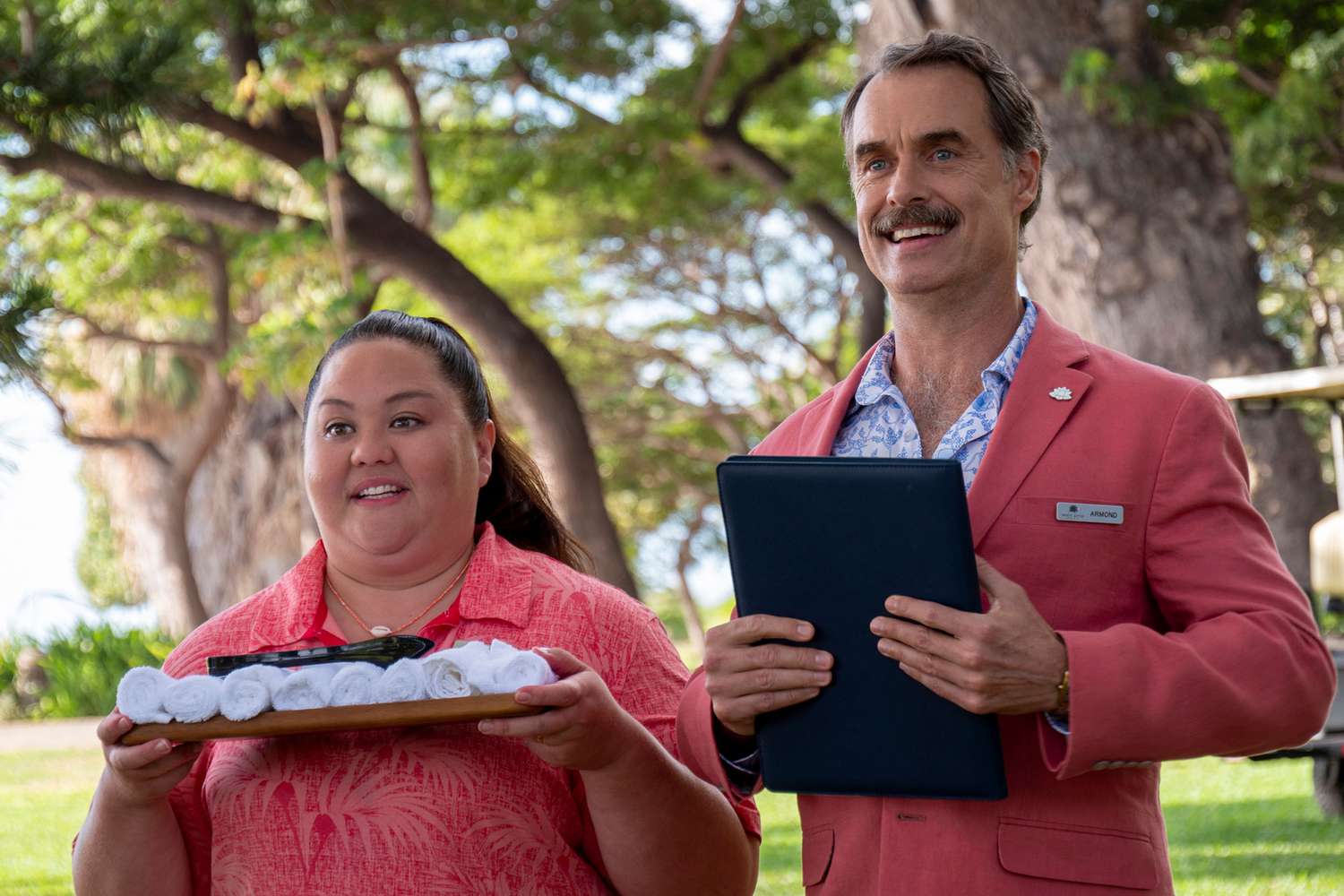





 saw a interview where she was laughing saying"Dont expect to hear me say THE PLANE!! THE PLANE!!!"
saw a interview where she was laughing saying"Dont expect to hear me say THE PLANE!! THE PLANE!!!"

